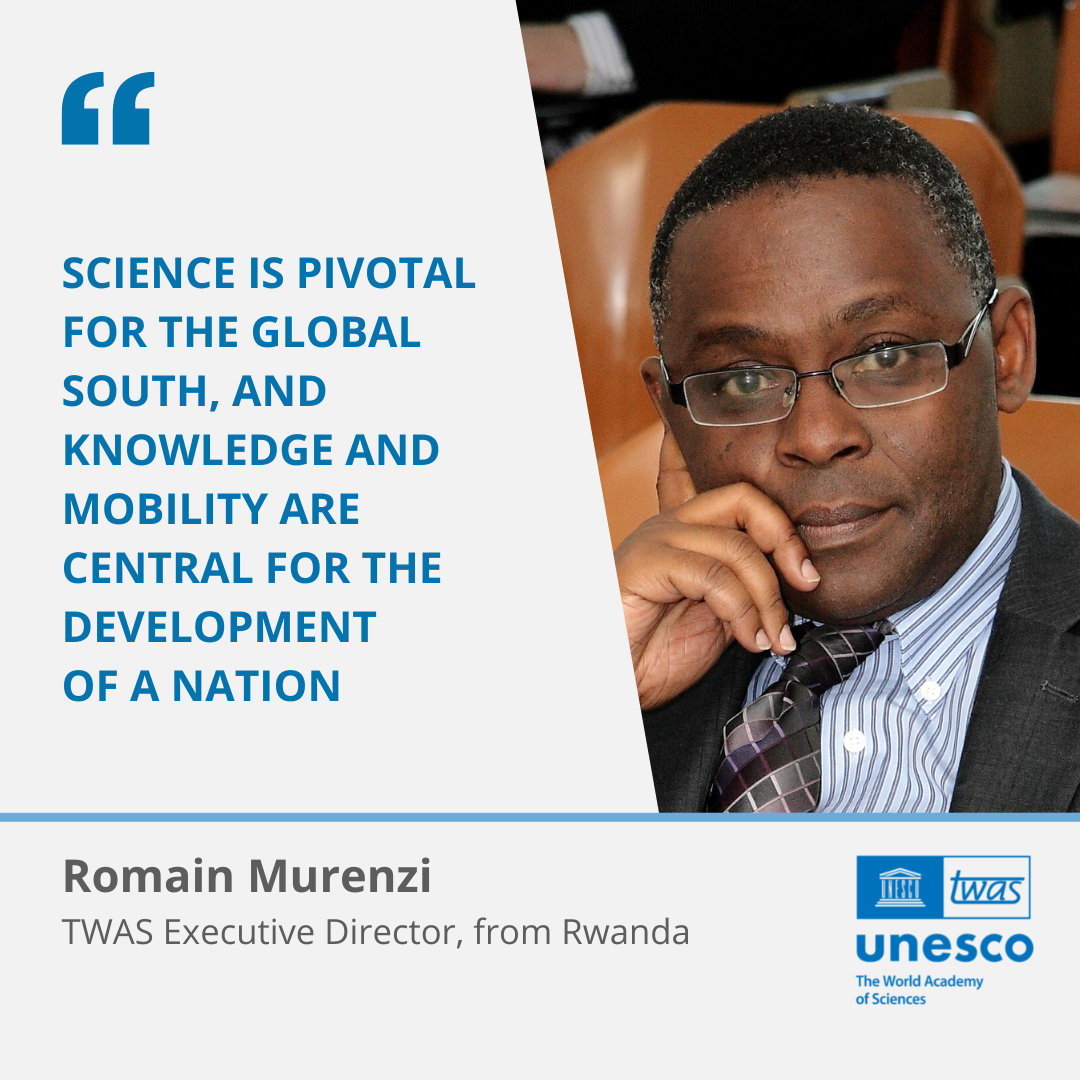
"Science is pivotal for the global South, and knowledge and mobility are central for the development of a nation," said TWAS Executive Director Romain Murenzi in a radio interview.
During a 24 January conversation with anchorwoman Caroline Lachowsky, at Radio France International, Murenzi recalled some fortunate events from his professional career. He also explained why education opportunities are important at all levels, especially for developing countries. The recording (in French) is available here.

"Publications are vital for a scientist," Murenzi said. "But publishing in high-ranking scientific journals is a challenge for many African countries, because of the competition with developed countries." As little as 2.6% of scientific publications come from Africa, and 60% of those come from South Africa and Egypt alone, he added.
The world is now experiencing the Fourth Industrial Revolution, where artificial intelligence, gene editing, advanced robotics and global interconnectivity are transforming society. Science and technology are therefore essential to keep pace with these emerging fields, TWAS Executive Director said.
Murenzi, a native of Rwanda, served as Rwanda's Minister of Education, Science, Technology and Scientific Research and as Minister in the President's Office in Charge of Science and Technology. In that position, he was actively involved in the modernization of Rwanda's education system and helped build the country's scientific and technological capacity after the 1994 genocide. In his scientific career, he recalled, he took advantage of mobility programmes within Europe and cultural exchanges with researchers from other countries.
Higher education is pivotal, Murenzi emphasized. "Scientists know how to explain compelling topics to the population and build a sense of belonging to that nation. They know how important it is to work for peace and prosperity. If we wish to have tomorrow's scientists, we must start today."
Cristina Serra

